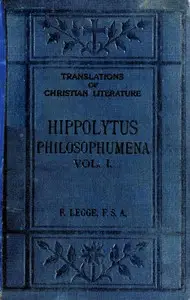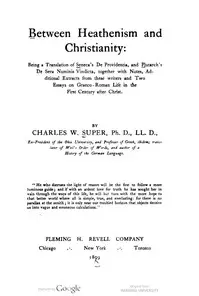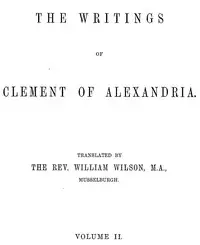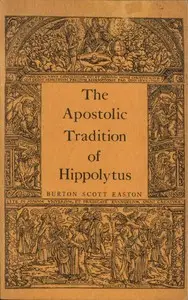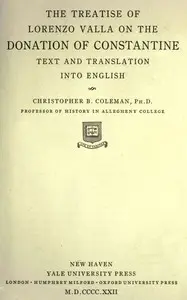"Philosophumena; or, The Refutation of All Heresies, Volume II" by Antipope Hippolytus is a scholarly exploration from the 3rd century that clashes with unorthodox Christian ideas, specifically those linked to Simon Magus and Valentinus. It exposes the core beliefs of these heresies, scrutinizing their effects and deviations from mainstream Christian thought while spotlighting the teachings of Simon Magus and his followers, emphasizing his alleged magical abilities and self-proclaimed godhood. It looks at the difference between Simon’s beliefs and other heretics, noting their use of Greek ideas instead of the Bible. The book shares stories of Simon's efforts to portray himself as a god and discusses Valentinus, who also had heretical views. The book establishes a strict review of different religious views, giving a base understanding of early Christian beliefs against heretical thought.
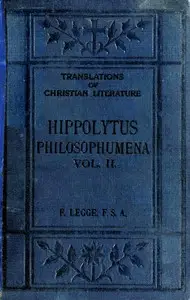
Philosophumena; or, The refutation of all heresies, Volume II
By Antipope Hippolytus
Uncover ancient religious battles as a determined author dismantles dangerous deviations from early Christian teachings.
Summary
About the AuthorHippolytus of Rome was a Bishop of Rome and one of the most important second–third centuries Christian theologians, whose provenance, identity and corpus remain elusive to scholars and historians. Suggested communities include Rome, Palestine, Egypt, Anatolia and other regions of the Middle East. The best historians of literature in the ancient church, including Eusebius of Caesarea and Jerome, openly confess they cannot name where Hippolytus the biblical commentator and theologian served in leadership. They had read his works but did not possess evidence of his community. Photios I of Constantinople describes him in his Bibliotheca as a disciple of Irenaeus, who was said to be a disciple of Polycarp, and from the context of this passage it is supposed that he suggested that Hippolytus so styled himself. This assertion is doubtful. One older theory asserts he came into conflict with the popes of his time and seems to have headed a schismatic group as a rival to the bishop of Rome, thus becoming an antipope. In this view, he opposed the Roman Popes who softened the penitential system to accommodate the large number of new pagan converts. However, he was reconciled to the Church before he died as a martyr.
Hippolytus of Rome was a Bishop of Rome and one of the most important second–third centuries Christian theologians, whose provenance, identity and corpus remain elusive to scholars and historians. Suggested communities include Rome, Palestine, Egypt, Anatolia and other regions of the Middle East. The best historians of literature in the ancient church, including Eusebius of Caesarea and Jerome, openly confess they cannot name where Hippolytus the biblical commentator and theologian served in leadership. They had read his works but did not possess evidence of his community. Photios I of Constantinople describes him in his Bibliotheca as a disciple of Irenaeus, who was said to be a disciple of Polycarp, and from the context of this passage it is supposed that he suggested that Hippolytus so styled himself. This assertion is doubtful. One older theory asserts he came into conflict with the popes of his time and seems to have headed a schismatic group as a rival to the bishop of Rome, thus becoming an antipope. In this view, he opposed the Roman Popes who softened the penitential system to accommodate the large number of new pagan converts. However, he was reconciled to the Church before he died as a martyr.

